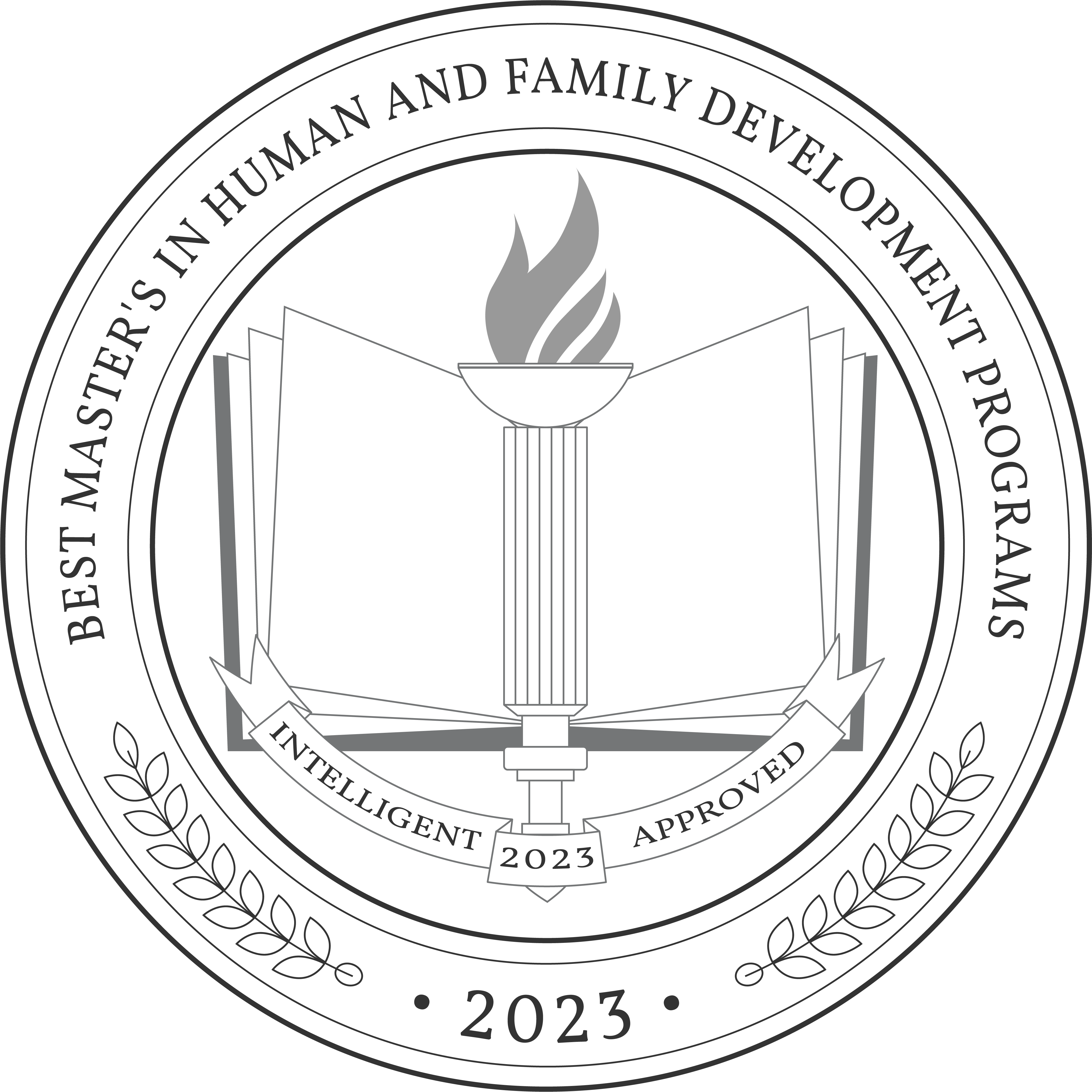Why This Matters
-
COMMUNITY AND SOCIAL SERVICE POSITIONS GROWING 12%
The Bureau of Labor Statistics predicts that community and social service jobs will grow 12% from 2019 to 2029. This could result in another 348,000 jobs for these professionals by 2029.
-
PURSUE 6+ DIFFERENT CAREER PATHS
A Master’s in Human and Family Therapy is flexible and can lead to over a half-dozen different careers. Work as a rehabilitation counselor, community health worker, social worker, or another position after graduation.
-
EARN ANOTHER $20,000+ ANNUALLY IN A MANAGEMENT POSITION
Social and community service managers earn a median annual salary of $67,150, compared to the median salary of $46,090 across all jobs in the field. Becoming a manager usually requires a master’s degree.
Our Research
We looked at many Master’s in Human and Family Development degree programs, including both Master of Science (MS) and Master of Arts (MA) degrees. Our list contains on-campus, online, and hybrid programs to offer individuals the maximum flexibility in their choice.
Every program mentioned is regionally accredited. A few have programmatic accreditation through other national organizations, such as the National Association for the Education of Young Children (NAEYC) or the Commission on Accreditation for Marriage and Family Therapy Education (COAMFTE).
We evaluated each program on the basis of flexibility, faculty, course strength, cost, and reputation. Then we calculated the Intelligent Score for each program on a scale from 0 to 100. For a more extensive explanation, check out Our Ranking Methodology.
- 79 hours to write this article
- 193 universities and colleges we assessed
- 203 education programs we compared
The Top 50 Master’s in Human And Family Development Degree Programs

Discover More Options
What You Should Know About This Degree
The field of human and family development is broad, and it encompasses multiple areas of study. These master’s degree programs may cover childhood and adolescent development, family studies, gerontology, psychology, counseling, and other subjects. Some programs are more generalized, while others focus more specifically on one or a few of these areas. Choose a program that’s suited to your interests and career aspirations.
While a Master’s in Human and Family Development degree provides a strong foundation in these subjects, the degree isn’t intended to prepare students for licensure as counselors or therapists. If you want to practice as a counselor or therapist, a Master’s in Counseling or a Master’s in Marriage and Family Therapy is likely a better degree option.
A master’s degree isn’t necessary to enter the field of community and social services, but it can make you a more attractive job applicant. Obtaining this master’s degree could open up career advancement opportunities, especially opportunities in managerial roles.
Most of these degree programs, including many of the online programs, have an in-person component where students gain experience working directly with people. As you evaluate programs, make sure any such component is compatible with your schedule and other obligations.
What’s Next?
Consider these questions as you further research Master’s in Human and Family Development degrees:
- How long does it take to complete this online degree? Most of these degree programs range from 30 to 36 credits, which normally takes two years of full-time study to complete. Enrolling part-time will extend the duration of a program.
- Are courses offered synchronously or asynchronously? Programs might offer courses synchronously or asynchronously, and many use a combination of the two modes. Synchronous courses have a set time during which classes must be attended, while asynchronous courses can be completed on your own schedule.
When you identify potential programs of interest, contact them or check their websites to learn the admissions process details. You’ll need to know what materials to send in and when to send them in by.
Also think about how you’ll pay for a degree. Ask programs about any financial aid and scholarships that are available. You might also be able to get tuition reimbursed from an employer if you’re currently working.